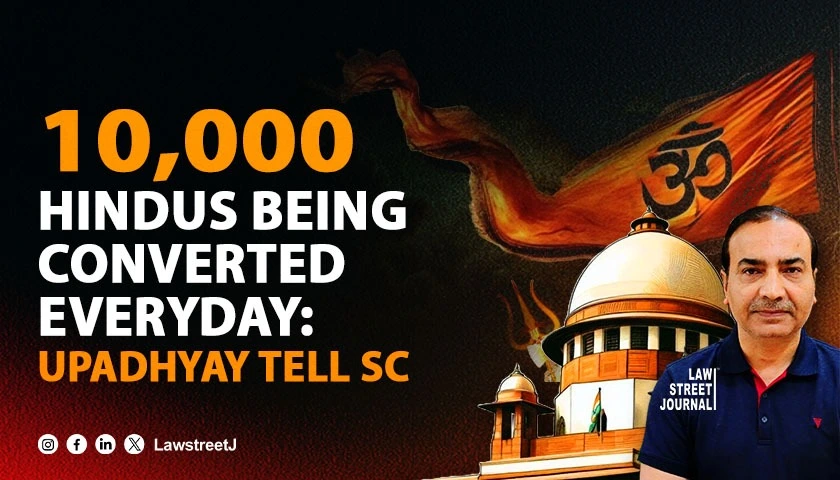NEW DELHI: Eminent advocate Ashwini Upadhyay has claimed before the Supreme Court thousands of Hindus were being unlawfully converted to other religions every day. He was defending the anti-conversion laws, having passed by various state governments.
"Conversion is a waging war 10 thousand Hindus are converted everyday," he said.
A bench led by Chief Justice of India Sanjiv Khanna, "We need to hear this. List it in the week commencing May 13, 2025."
Jamiat Ulama-I-Hind, along with others have challenged validity of laws passed by Uttar Pradesh, Himachal Pradesh, Madhya Pradesh, Gujarat and others to check religious conversions specially for marriage.
Asserting that the right to freedom of religion does not include a fundamental right to convert other people to a particular religion, the Centre had favoured the laws to check illegal conversion, saying those were necessary to protect "cherished rights of vulnerable sections of the society including women and economically and socially backward classes".
Upadhyay had himself filed a plea claiming religious conversion by “carrot and stick” and “by hook or crook” not only offended Articles 14 (equality), 21 (life and liberty), 25 (religious freedom), but also went against the principles of secularism, which was integral part of the basic structure of the Constitution.
He had contended that the cause of action accrued on May 10, 1995, when the top court in the Sarla Mudgal case directed to find out the feasibility of enacting anti conversion law but the Centre did nothing to stop deceitful religious conversions.
"Incidents are reported every week throughout the country where conversion is done by intimidating, threatening, deceivingly luring through gifts and monetary benefits and by using black magic, superstition, miracles and hypocrisy but the Centre has not taken appropriate steps to stop these menaces of society," the petitioner claimed.
He contended due to inaction of the Centre-States, many individuals, NGOs and institutions were involved in conversion of poor people, particularly from the SC/ST community, to other religions by various means.
Upadhyay pointed out that eight states Orissa (1967), Madhya Pradesh (1968), Arunachal Pradesh (1978), Chhattisgarh (2000), Gujrat (2003), Himachal Pradesh (2006), Jharkhand (2017) and Uttarakhand (2018) have enacted the anti-conversion laws, but there was urgent need by the Centre to bring out such a law with a minimum imprisonment of three years with a hefty fine, for implementation across the country.















